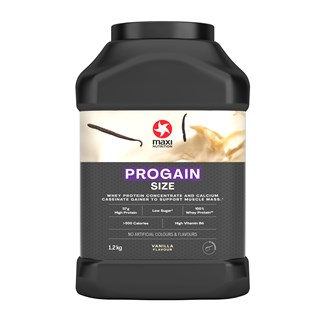Supplements for Bulking
Adding muscle mass is, in theory, simple. Increase your calories, get plenty of protein and perform resistance training that forces your muscle fibres to rebuild and repair larger than they were before.
However, with the demands of a modern lifestyle, even meeting these simple requirements can be tough. Through stress, work routines and your day-to-day life, staying on track with a good diet and gym schedule can be tough.
Fortunately, supplements are there to help. As a way to aid your performance in the gym, help you meet your nutritional goals and even assist your muscle gain efforts, the right supplements can give you a much-needed push. Especially during the winter bulk, when the cold, dark nights can discourage even the most dedicated lifter.
Here are the best supplements for bulking up, whether you’re a bodybuilder wanting to make the most of offseason or a gym goer just wanting to pack on the pounds to look great next summer.
Whey Protein Powder
Whey protein is one of the world’s most common supplements, used by performance athletes from all walks of life. It is, quite simply, a way to boost your protein intake to ensure you’re getting a large amount of protein.
The body needs protein to grow, and supplementing means you can quickly up your protein levels. Whey protein is the fastest-acting of the main ‘types’ of protein (whey, casein and soy) and therefore suits post-workout consumption.
Here at MaxiNutrition (Formerly Maximuscle), we’ve written extensively about the benefits of whey protein. Without going over old territory, the reason it’s so good for bulking is because active athletes need 1-2g of protein per KG of bodyweight. Whey protein powder helps you meet this target. Consider our MaxiNutrition whey protein concentrate, which contains 21.2 grams of protein per 30g serving.
Creatine Monohydrate
Creatine is the most scientifically researched performance supplement in the world. Creatine itself is a non-essential dietary compound found in fish, meat and also naturally occurring in the human body. It is stored in our muscle cells and is used to power high intensity muscle contractors.
Due to the low amount in the body, supplementing with creatine has proven effective. How? By increasing the energy supplied to muscle cells – which means you can get extra energy during periods of high intensity, short burst resistance training. What this means in plain English is that creatine allows a lifter to get through a few more reps, by decreasing time to exhaustion.
For someone looking to bulk up, the more weight or reps you can lift, the better overall muscle breakdown and repair you’ll achieve. As such, creatine monohydrate helps lifters push that little bit harder, and therefore get that little bit more. You will need to consume at least 3g of creatine per day to see a beneficial effect. Due to the increased water in your muscle cells, you may also notice the appearance of increased size.
MAXZMA
ZMA, or zinc citrate, magnesium citrate and vitamin B6, are available in pill format and help maintain natural hormone levels, specifically testosterone. Magnesium helps facilitate protein synthesis, while Vitamin B6 helps protein metabolise.
For those looking to add mass over winter, ZMA’s offer a multitude of benefits.
Zinc helps maintain natural testosterone levels, which can be depleted due to stress and outside factors.
BCAA’s
Branched-chain amino acids, like protein powder, are another supplement most bodybuilders use every day without really understanding their purpose.
All protein contains BCAA’s, but not all protein sources have a full ‘profile’ of them. The supplement is best consumed during a workout to support your session.
Our MaxiNutrition BCAA 3000 supplement has a 3g:1g:1g ratio of leucine, isoleucine and valine, perfect for those wanting to add mass this winter.
Glutamine
Glutamine is the most abundant amino acid in the body. The body naturally creates glutamine and therefore it is known as a non-essential amino acid. Interestingly is the changes in glutamine post exercise.
That’s our top five list – but there are many supplements that will aid people looking to add mass. You’ll have to assess your personal needs, routine and diet and use supplements to fill any gaps. They are never a replacement for good diet and workout routines, but will help you push that little bit harder, and in return, grow that little bit more.














